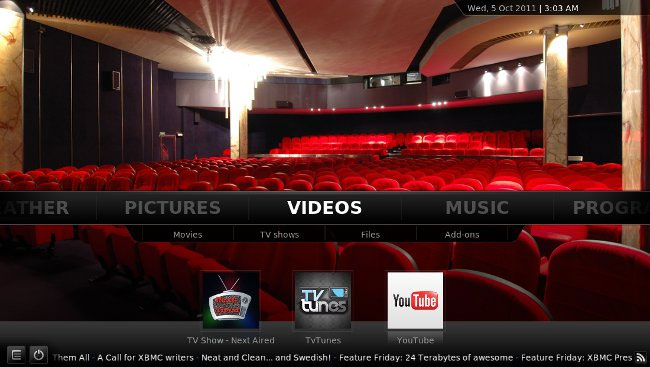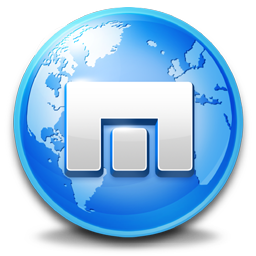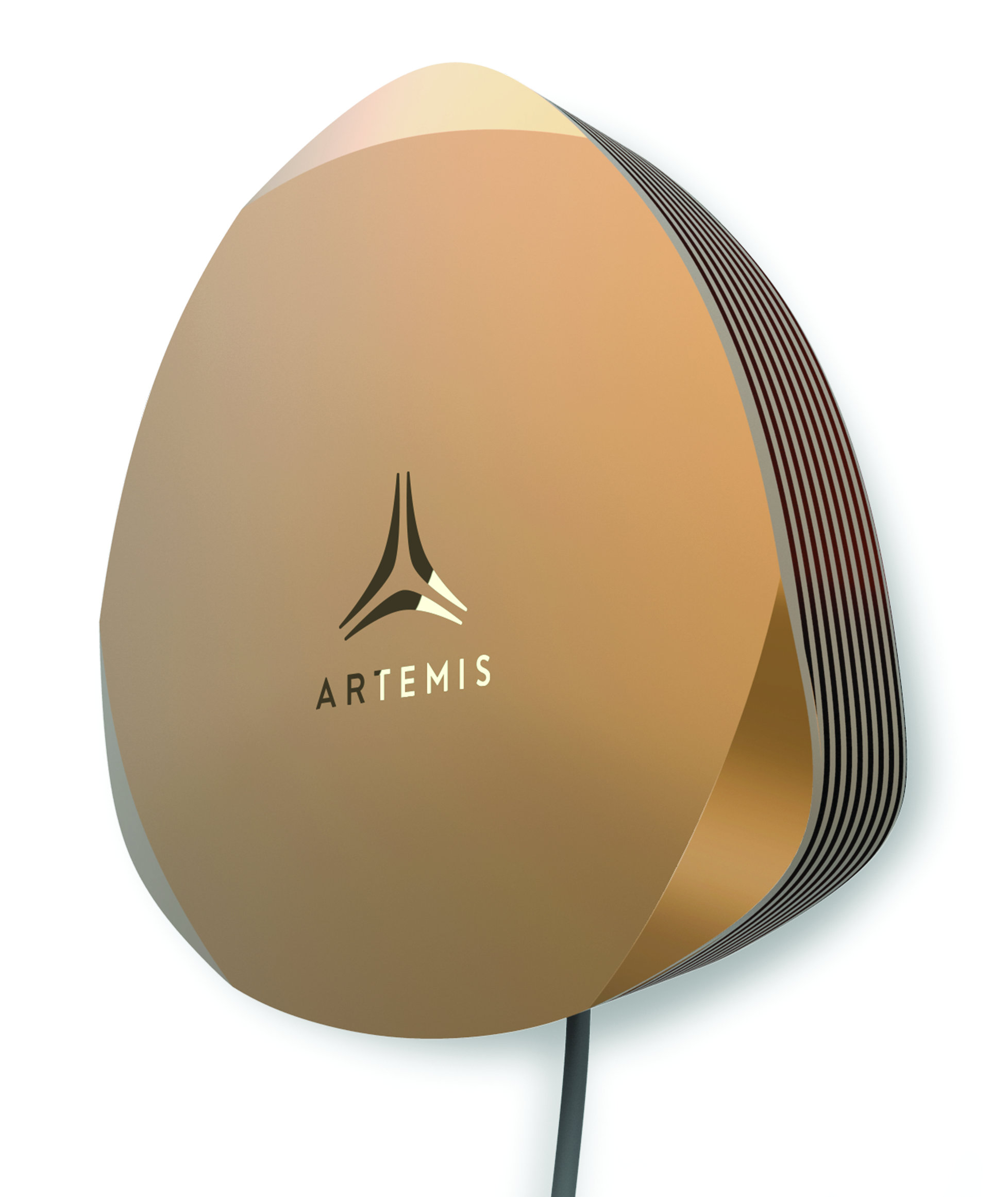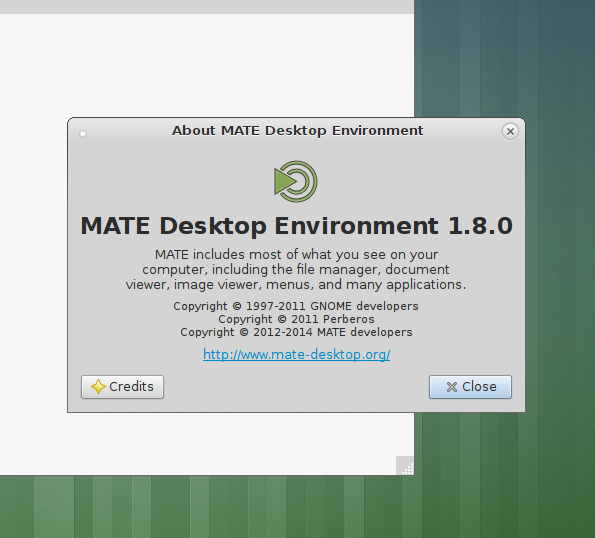
For HTPC folks, XBMC recommends an upgrade from Windows XP to Linux
It's doubtful there are many people out there at this point that don't already know that support for Windows XP will come to an end tomorrow, April 8th. Despite that, a number of individuals and businesses will continue to run the operating system.
This doesn't likely apply to those maintaining an HTPC, as this tends to be a more geek-savvy set, but no doubt a few are out there. For those users, XBMC has passed its judgment, and the verdict is Linux.

Canonical admits failure -- shuttering Ubuntu One cloud services
The cloud business is all the rage nowadays. There are so many companies offering similar services, that it can be hard to choose one. It can also be hard to break into the crowded landscape when big boys such as Microsoft and Google are representing.
So, when Canonical launched Ubuntu One, I was dubious. After all, a small company competing in cloud storage and music sales would be facing an uphill battle. Also, I am sorry to be blunt, but naming a cloud service after an operating system is just plain idiotic. It confuses consumers to think it only works on that operating system. Not to mention, Linux users are very competitive -- Fedora or Arch users would never use anything branded "Ubuntu". And so, today, Canonical announces that it is shuttering its cloud services. Will you shed a tear?

Linux distro Ubuntu 14.04 Trusty Tahr Final Beta available now
There are so many Linux distributions nowadays, that it can be overwhelming for a new user to choose. However, a safe bet for a Linux newcomer is Ubuntu. It is popular, easy to install and well supported by a large community. Hell, it looks rather sexy too -- modern and classy.
Unfortunately, while Canonical releases new versions twice a year, a Long Term Support (LTS) version only comes every two years. If you aren't familiar, an LTS version gets longer support than a normal release -- 5 years rather than 9 months. This is quite the considerable difference. Today, Ubuntu 14.04, which will be an LTS version, reaches Final Beta status.

Linux desktop environment GNOME 3.12 available
One of the great things about Linux distributions is the customization. In contrast, an operating system like Windows 8 is rather limited. Sure, you can change some colors, wallpapers and sounds, but pretty much, it is what it is. What you see is what you get. That is probably fine for most people, however, Linux users are not most people.
With an operating system such as Ubuntu or Fedora, the user can choose the interface in which they will interact. There are many desktop environments to choose from too, such as KDE, Mate, or my favorite, GNOME 3. Today, the open-source community is treated to the newest version of GNOME -- 3.12. Linux users can start salivating now.

Maxthon web browser comes to Linux -- move over, Chrome and Firefox
When it comes to Linux distributions, there is quite a lot of software available. However, it is not always great. Many programs are third-rate, and the ones that are good, aren't the big name brands. Windows and OS X definitely have a superior selection of popular software.
One place where Linux does not lack, is web browsers. With the exception of Internet Explorer and Safari, all the other big-boys are represented -- Chrome, Firefox and Opera to name a few. One browser, Maxthon, was not available for Linux -- until now.

Alienware and Crytek join forces for Linux gaming
It used to be that if you were a gamer, you needed to run Windows or buy a console. For the most part, that is still true -- Windows is the king of PC gaming. However, gaming on OS X and Linux has made incredible progress. One of the biggest game-changers for Linux gaming has been Valve's SteamOS. This is a specialized Linux distribution that focuses on game playing and management.
While Valve deserves the appreciation of the Linux community, it is never a good idea to put all of your eggs in one basket. The old saying is that absolute power corrupts absolutely. With that said, the future of Linux gaming cannot be trusted with Valve alone -- nothing against the company, of course. Today, Dell's Alienware division announces a partnership with game-developer Crytek to further the progress of Linux-gaming.

Want to learn Linux in an online classroom? Now you can, for free
While self-learning and real-world experience are both great types of education, there is still something to be said for a quality, structured classroom lesson. College is a great place for structured learning, but the costs can be overwhelming. Even though education and self improvement are great investments, no one wants to be buried in student loan debt.
If you are interested in learning, the subject of Linux is a great choice. After all, more and more businesses are utilizing Linux-based operating systems, while Android and Chrome OS are increasing in popularity. Luckily, the Linux Foundation has partnered with edX to bring free Linux courses to the masses.

pCell is only as good as the Linux it runs on
I’m still working-away on my IBM book and it is still a week from being finished (the well-known second 90 percent syndrome). The book, if I am allowed to sell it on Amazon, will cost a whopping $3.99 and will be worth the money. But I’m still a columnist of sorts so here are my thoughts on pCell, an impressive new technology for increasing performance of LTE mobile data networks. It was invented by WebTV founder Steve Perlman, introduced two weeks ago in New York (very impressive video here, but fast-forward to 5:30) and was the talk of the Mobile World Congress in Barcelona the following week. pCell is amazing. It is also probably a security nightmare waiting to happen.
This is not me being a bad-ass or somehow wanting pCell to fail. I think it is great and I want it to wildly succeed, but there are a couple things about pCell that have been going over the heads of most reporters, security being one of them. I’ve read all the stories about pCell and the word security doesn’t appear in any of them, none.

Chromium browser succesfully ported to Ubuntu's Mir display server
When Canonical decided to shun the Wayland display server for its own, called Mir, the Linux community was up in arms. Many people felt that Canonical was not being a team player. While I understand that point of view, the company is well within its right to go in a different direction with Ubuntu. After all, open-source and free software is about choice -- not falling in line.
Unfortunately, getting things up and running on Mir will take time. Today however, a major milestone has been achieved -- the Chromium browser has been ported to Mir.

Linux desktop environment Mate achieves 1.8 release
Linux users do not like change. Well, actually, they do not like change for the sake of change. If something works, they typically hang on to it until something truly better comes along. A good example of this is GNOME 2. People love it and it works well. However, the GNOME Project moved to version 3 and radically changed how it works. GNOME purists were angry as version 2 worked just fine -- for them. And so, many hung onto the outdated version, shunning version 3.
Luckily, Linux and open-source software enables forking. Forking is basically taking source code, but taking it in a different direction than the original creator. And so, The Mate Desktop was created as a fork from the ashes of GNOME 2. Today, Mate 1.8 releases to the world.

The first Beta of Ubuntu GNOME 14.04 is here -- Linux fans, download it now
Linux is on a roll lately, as Android and Chromebooks continue to gain marketshare. While this should be a win for the open-source community, many purists do not consider Android or Chrome OS to truly be Linux. Of course this is not true, as both operating systems utilize the Linux kernel. However, I understand where Google detractors are coming from; a distribution like Ubuntu is more the traditional approach to using the kernel.
While I too love Ubuntu, I am not a fan of Unity. While I do not hate Canonical's environment, I simply prefer and adore GNOME 3. Today, the first Beta of Ubuntu GNOME 14.04 is here. It's time to brush off that DVD burner, and write that .ISO!

Canonical announces third edition of Ubuntu App Showdown contest
Chickens and eggs are pains in the butt. No, not the actual bird and its ovum, but the causality dilemma. The old argument asks if a chicken or egg came first. Of course, both answers are a dilemma as you need a chicken to lay an egg and you need an egg to get a chicken.
This applies to computer platforms and apps too. People may choose to buy an Android or iOS device because there are a lot of apps. Developers make the apps because a lot of people choose the platform. So, how can a new platform get apps if no one develops for it? In other words, if you don't have users, you wont get apps and if you don't have apps, you won't get users. In an effort to get developers interested in its mobile platform, Canaonical announces the third edition of Ubuntu App Showdown contest.

The Chinese love Ubuntu Linux -- over 1.3 million downloads in less than 6 months
China arguably makes the technology world go around. While the United States and other countries are a source of popular ideas, the manufacturing and production implementation of those ideas often happens in China. And so, the country is a very important economy in which to prosper and grow.
The Chinese people have taken favor to an unlikely operating system, Ubuntu Kylin, which Canonical calls "a version of Ubuntu optimized for them". In other words, Linux is gaining ground in the most populous country in the world -- the People's Republic of China.

Mark Shuttleworth concedes -- Ubuntu Linux to use systemd
Ubuntu is a wildly popular Linux distribution. Heck, it is probably the most well known distro. However, it is also based on Debian. While Canonical undoubtedly puts a lot of work into its operating system, many of the components are developed by others, including the Debian and Gnome communities -- it is a team effort.
Canonical has not exactly been a team player. If you recall, last year the company announced it was not using the Wayland display server in support of its own, called Mir. This angered many in the Linux community. With that said, Mark Shuttleworth, Canonical founder, shocks the open-source world by conceding in his fight against systemd. Yes, he announces that Ubuntu will abandon upstart as a result of systemd being selected by the Debian technical committee.

2013's malware trends reveal non-Windows systems face greater threats
Threats to Mac OS X, Linux and Android systems have increased over the past year as the malware landscape has evolved.
This is among the findings of Russian antivirus company Doctor Web which has released its annual overview of threats. Other trends include an increase in the number of programs designed to display annoying ads and a surge in the number of Bitcoin and Litecoin mining trojans.
